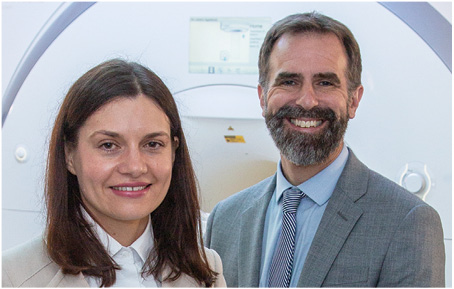Your Donations in Action: Anna Trofimova, MD, PhD
Brain Connectivity Alterations in Visual Vertigo Syndrome Following Concussion

Concussions are very common medical problem, between 1.6 and 3.8 million concussions occur annually in the U.S. Up to 80% of these patients experience vestibular symptoms resulting in loss of quality of life and increased health care costs.
In her study, “Functional and Structural Brain Connectivity Alterations in Visual Vertigo Syndrome: A Prospective MRI Study of Central Vestibular Impairment in Mild Traumatic Brain Injury B,” 2019 RSNA Research Resident Grant recipient, Anna Trofimova, MD, PhD, Emory University, Atlanta, seeks to define functional brain connectivity alterations in patients with post-concussive visual vertigo syndrome (VVS) using a novel vestibular paradigm task-based functional MRI (t-fMRI) and resting state functional MRI (rs-fMRI). Dr. Trofimova also seeks to define structural brain connectivity changes in vestibular-visual networks in patients with post-concussive VVS using diffusion tensor imaging (DTI).
With the guidance of her mentor, Jason Allen, MD, PhD, Dr. Trofimova’s study will include patients with both subacute mTBI and post-concussive VVS. The control group will include age-matched healthy subjects. Participants will undergo vestibular function testing and research brain MRI, including a vestibular paradigm t-fMRI, rs-fMRI and DTI. Primary regions of interest compared between the two groups will be primary vestibular cortex, visual association cortex, frontal eye fields and hippocampi.
“Our study will significantly advance our understanding of the altered brain connectivity underlying persistence of post-concussion vestibular dysfunction,” Dr. Trofimova said. “This will have significant clinical impact allowing development of patient-centric vestibular rehabilitation techniques, resulting in faster recovery and return to daily life activities.”